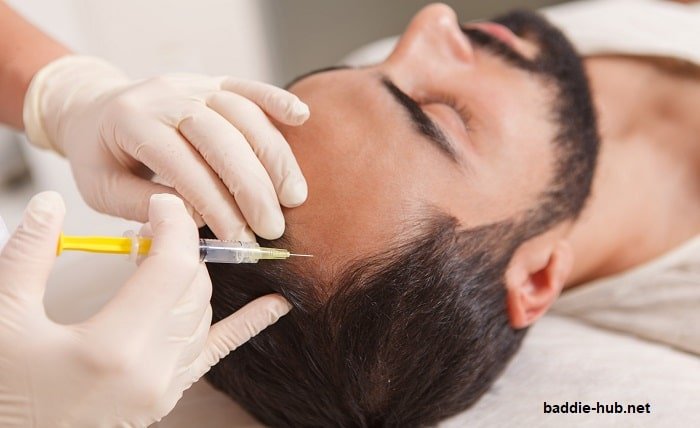The Science Behind Hair Thickening Treatments

Thinning hair is a concern affecting millions globally, prompting individuals to seek methods that promise a fuller, healthier look. The desire for thick, voluminous hair is a matter of aesthetics, confidence, and self-perception. Understanding the science behind thickening treatments may help consumers make educated decisions about how to get thicker hair effectively and safely.
Fundamentals of Hair Growth
To comprehend how thickening treatments work, it’s essential first to understand the basics of its growth. Hair grows from follicles located beneath the skin’s surface. Each follicle has a cycle that includes growth (anagen), cessation (catagen), and rest (telogen) phases. Genetics, nutrition, and overall health influence thickness, growth speed, and lifespan. Problems in the growth cycle may lead to thinning and alopecia.
Key Ingredients in Thickening Products
Many topical treatments for thickening rely on active substances that promote scalp and follicles:
Minoxidil: Minoxidil is a vasodilator that widens blood vessels, improving blood flow to follicles. This can enhance follicle size and prolong growth.
Ketoconazole: Often found in shampoos, ketoconazole is praised for its anti-inflammatory and antifungal qualities, which can improve scalp health and support growth.
Biotin: A vitamin that plays a vital role in the health of hair, skin, and nails, biotin can strengthen hair strands, reducing breakage and enhancing thickness.
These ingredients can be found in various over-the-counter products and are the foundation of many commercial thickening treatments.
Role of Diet and Nutrition
The adage “you are what you eat” particularly applies to health. Nutrients such as proteins, vitamins (especially A, C, D, and E), iron, selenium, and omega-3 fatty acids are crucial for healthy growth. Diets lacking in these essential nutrients can lead to weakened growth and thinner hair strands. Incorporating a balanced diet is vital for overall health and maintaining luscious, thick hair.
Technological Advancements in Hair Treatment
Apart from that, medical treatment at the hormonal level is important to protect hair follicles while supporting hair growth. This is how Finasteride works. In fact, many hair treatment specialists are prescribing Finasteride to deal with this issue. Basically, it is a medication that deals with hair thinning and receding hairlines.
The field of restoration has seen significant technological advancements that have led to innovative treatment options:
Platelet-Rich Plasma (PRP): This treatment involves extracting a patient’s blood, processing it to enrich for platelets, and then re-injecting it into the scalp. The growth factors in the platelets stimulate natural growth.
These advanced treatments can be particularly effective for those who have not seen results from topical treatments or who are experiencing significant thinning.
Follicular Unit Extraction (FUE): FUE is a minimally invasive transplant method that involves removing individual follicles from donor areas and implanting them into the thinning or balding areas of the scalp. This precise method allows for a natural-looking hairline and minimises scarring, offering a viable solution for those seeking lasting results. These advanced treatments can be particularly effective for those who have not seen results from topical treatments or are experiencing significant thinning, providing a long-term solution for restoration and enhancing overall confidence and well-being.
Individuals considering FUE transplants should know the importance of proper pre- and post-operative care. Before the procedure, thorough consultations with a qualified specialist are essential to assess candidacy and discuss expectations.
Exploring Natural Remedies for Thickness Enhancement
Besides commercial products and medical treatments, natural remedies are often revered in care routines, especially for those who prefer a holistic approach. Ingredients like castor oil, aloe vera, and rosemary oil are celebrated for their natural ability to stimulate the scalp and enhance follicle health. Castor oil, rich in ricinoleic acid, penetrates deeply into the scalp, nourishing hair follicles and promoting thicker hair growth. Aloe vera contains proteolytic enzymes that repair dead skin cells on the scalp, fostering healthier follicles. With its antimicrobial properties, Rosemary oil can improve scalp health and support growth by stimulating blood circulation. These natural remedies offer gentle yet effective alternatives to conventional care methods, naturally promoting thicker, fuller hair.
The Psychological Impact of Thinning and Effective Coping Strategies
Alopecia can significantly affect an individual’s psychological well-being, leading to decreased self-esteem and anxiety. Understanding the emotional dimensions of thinning is crucial for holistic treatment. This subsection explores the psychological effects of thinning. It offers practical coping strategies, such as engaging with support groups, consulting mental health professionals, and exploring aesthetic options like styling and accessories to boost confidence and self-perception.
Maintaining Results and Managing Expectations
While many treatments can promote thicker hair, maintaining the results requires ongoing care and realistic expectations. Regular use of treatment products, consistent follow-up treatments for advanced therapies, and a commitment to a healthy lifestyle are all necessary to sustain thickness. Additionally, understanding that each person’s response to treatments will vary is crucial for setting realistic goals.
Knowing how to get thicker hair involves a combination of science-backed treatments and holistic approaches. Individuals can choose the most appropriate treatment method by understanding the underlying mechanisms that promote growth and thickness. Whether through topical treatments, dietary adjustments, or cutting-edge technologies, the journey to thicker hair starts with a solid foundation of knowledge and a committed approach to care. This comprehensive understanding ensures that efforts to enhance thickness are practical and aligned with individual health profiles.




